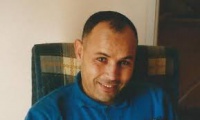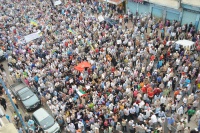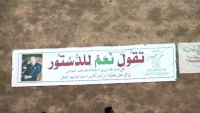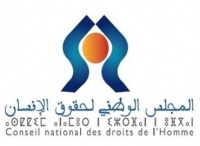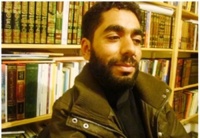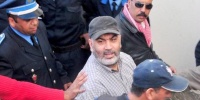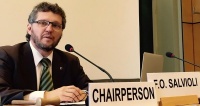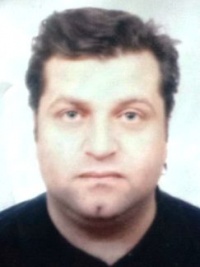Morocco: Alkarama Calls on Authorities to Implement UN Decision on Ali Aarrass
On 21 October 2016, Alkarama sent to the United Nations Working Group on Arbitrary Detention (WGAD) new information about Ali Aarrass, detained since 2008 and sentenced on the sole basis of confessions obtained under torture.
Morocco: Submission of Alkarama's Shadow Report to the Human Rights Committee
On 23 September 2016, Alkarama submitted to the United Nations Human Rights Committee (HRCtee) its report on the implementation of Morocco's obligations under the International Covenant on Civil and Political Rights (ICCPR) in view of Morocco's upcoming review on 24 October. Highlighting the discrepancy between the State's report and the reality on the ground, Alkarama suggests 23 recommendations to improve the human rights situation in the country. Alkarama will also present its main concerns to the HRCtee experts as part of a meeting which will be held before Morocco's review.
Morocco: Submission of Alkarama’s Report on the Human Rights Situation in View of the State’s Next Universal Periodic Review
On 22 September 2016, Alkarama submitted its report on Morocco’s human rights situation to the United Nations Human Rights Council (HRC) in view of its third Universal Periodic Review (UPR), which will be held in May 2017. Despite the authorities’ tangible progress in the protection and promotion of human rights, some practices remain in violation of Morocco’s international obligations.
Morocco: Universal Periodic Review 2016 - Alkarama's Submission to the Stakeholders’ Summary
Joint Swiss-Moroccan initiative to assist human rights training at Alkarama Foundation
 On 9 March 2016, Alkarama provided a half-a-day intensive training on the role of NGOs in promoting and protecting human rights, to members of the Moroccan National Human Rights Council (CNDH) and civil society actors. The training was organised by Geneva Institute for Human Rights (GIHR), which wanted Alkarama to share its experience in assisting victims of human rights violations in the Arab world.
On 9 March 2016, Alkarama provided a half-a-day intensive training on the role of NGOs in promoting and protecting human rights, to members of the Moroccan National Human Rights Council (CNDH) and civil society actors. The training was organised by Geneva Institute for Human Rights (GIHR), which wanted Alkarama to share its experience in assisting victims of human rights violations in the Arab world.
Morocco: National Human Rights Council To Keep A Status Despite Lack of Independence from the Executive
In a report recently made public, the Sub-Committee on Accreditation (SCA) of the International Coordinating Committee (ICC) of National Human Rights Institutions (NHRIs) submitted its conclusions on the Moroccan NHRI, the National Human Rights Council (CNDH). Following the review of the CNDH in November 2015, the SCA decided to re-accredit the institution with the A Status despite several shortcomings to meet the Paris Principles − which set out the minimum standards required by NHRIs to be considered credible and to operate effectively − particularly its lack of independence from the royal authority.
Morocco: Journalist and Human Rights Defender, El Hasnaoui Victim of New Reprisals in Kenitra Prison
Moroccan journalist and human rights defender, Mustapha El Hasnaoui, was recently placed in solitary confinement by the prison administration of Kenitra prison. His family has had no contact with him since 7 January 2016 and is systematically denied the right to visit. Like many prisoners convicted of terrorism or suspected of belonging to the "Islamist movement", El Hasnaoui is particularly exposed to punishment and other degrading treatment at the hands of his guards. In July 2015, he had already been placed in an isolation cell for 18 days, where he nearly died of asphyxiation due to a gas leak in the prison. On 20 January, Alkarama seized the United Nations Working Group on Arbitrary Detention (WGAD) to bring to its attention the disciplinary action El Hasnaoui continues to suffer under.
Morocco: "The Belliraj Case" − Alkarama Calls on the UN to Invite the Moroccan Authorities to Release Abdelkader Belliraj, Sentenced to Life Imprisonment on the Sole Basis of Confessions Obtained Under Torture
On 4 January 2016, Alkarama seized the United Nations Working Group on Arbitrary Detention (WGAD) with the case of Abdelkader Belliraj, a 59-year-old Belgian-Moroccan citizen sentenced by the Moroccan authorities to life imprisonment in 2009 on the sole basis of confessions obtained under torture – which is why his case was dismissed in Belgium in October 2013. By seizing the WGAD for a second time, Alkarama hopes that this UN mechanism for the protection of human rights establishes the arbitrary nature of the victim's deprivation of liberty that has lasted for eight years, and calls on the Moroccan authorities to take the necessary measures to release him.
Morocco: The Authorities must Redouble Human Rights Efforts
Since 2011, Morocco has undertaken a series of institutional reforms affirming the protection of human rights. The 2011 Constitution embodies several rights and fundamental freedoms, and provides that secret detention is a crime of the utmost gravity. Despite these notable legislative reforms, the Moroccan authorities must do more to assure that certain provisions of the International Covenant on Civil and Political Rights (ICCPR), ratified by Morocco in 1979, are fully implemented. The fight against terrorism is too often a pretext for the authorities to suspend or restrict the fundamental rights expressed in the Covenant in an abusive manner, despite their absolute nature.
Morocco: Abdul Rahman Alhaj Ali still Pending Extradition More Than one Year After his Arrest
On 23 December 2015, Alkarama seized the Inter-ministerial Delegation for Human Rights (DIDH) regarding the case of Abdul Rahman Alhaj Ali, arrested on 30 October 2014 by the Moroccan police and still detained in Kénitra to this day without any legal basis.
 Algeria
Algeria Bahrain
Bahrain Djibouti
Djibouti Egypt
Egypt Iraq
Iraq Palestine/Israel
Palestine/Israel Jordan
Jordan Kuwait
Kuwait Lebanon
Lebanon Libya
Libya Mauritania
Mauritania Morocco
Morocco Oman
Oman Qatar
Qatar Saudi Arabia
Saudi Arabia Sudan
Sudan Syria
Syria Tunisia
Tunisia United Arab Emirates
United Arab Emirates Yemen
Yemen Other Countries
Other Countries

